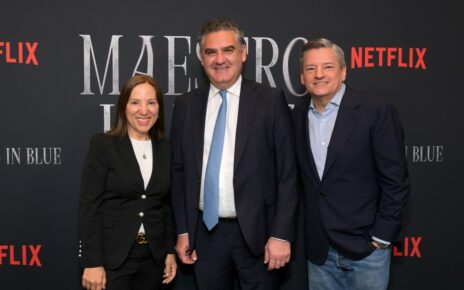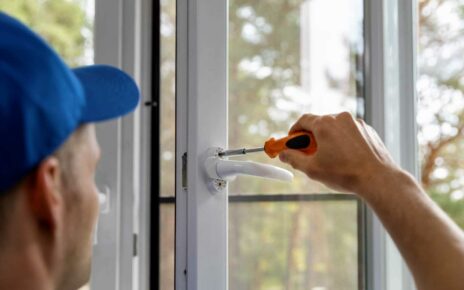Victoria’s top public health official pressed for a return to work from home as the state entered its third COVID winter.
The most recent advice of Acting Chief Health Officer Ben Cowie published overnight by the Victorian government strongly recommended that where practical, employers and universities should facilitate remote work and study until the end of August.
Acting Chief Health Officer Ben Cowie.Credit:Simon Schluter
The proposed return to a cornerstone of our earlier pandemic response, combined with Professor Cowie’s recommendation for masks to be required in public indoor settings such as schools, early learning, shops and bars, clubs and restaurants, would have represented a wholesale shift in our approach towards COVID.
The Cowie advice, provided to newly sworn Health Minister Mary Anne Thomas 12 days ago, advocated for current mask mandates to be substantially broadened as part of an urgent strengthening of our public health response before the present wave of infections built to threatening levels.
At the time the advice was provided in written form and verbally at a meeting between the Minister, the Acting CHO, Acting Health Secretary Katherine Whetton and her Acting Deputy Secretary Ryan Heath, there were 592 COVID cases in hospital. By the time the advice was published on Tuesday night, there were 897.
Thomas last week revealed she received and rejected the recommendation for broader mask mandates, having judged they were not the most effective way of promoting greater use of masks.
Health Minister Mary-Anne Thomas and Premier Daniel Andrews.Credit:Luis Ascui
“We need to empower Victorians to make their own decisions,” she said.
She encouraged bosses to consider implementing working from home arrangements if they were appropriate for their workplace and employees.
In his advice, Cowie conceded that mask requirements were “not universally accepted in the community”.
“It is open to the Minister to consider other means to achieve higher levels of mask use,” he said.
Federal Health Minister Mark Butler and Chief Medical Officer Paul Kelly on Tuesday delivered their strongest public message since the start of the latest Omicron wave, urging more people to wear mask indoors and work from home. Dr Kelly described the winter epidemic as a “significant new threat.”
Cowie told Thomas in their meeting that increased use of masks and other measures to reduce the spread of the virus would “directly reduce the number of hospitalisations and deaths from COVID-19.” He said it was “particularly important” to alleviate pressure on a healthcare system coming under increased strain from flu, other respiratory viruses and cardiovascular illnesses.
He described face masks as a “low impost public measure” that is generally well accepted by the community but noted that the use of masks, including on public transport where they are still mandated, had declined since the start of the year.
The Cowie advice, which the government is obligated to publish within seven days of new pandemic orders coming into force, provides a sobering snapshot of the public health risk posed by the dominant, BA.4/BA.5 strains of the Omicron variant.
These mutations are more contagious and better at evading immunity from vaccination and prior infections than earlier Omicron strains. Cowie noted emerging, though not conclusive, evidence that these strains may also cause more severe illness than their viral antecedents.
Cowie acknowledges that while Victoria’s ongoing pandemic response will be more industry and community led than the government-dictated response of 2020 and 2021, more needs to be done to sell the public health message. “It is crucial that there is strengthened community engagement on prevention and response strategies to support this shift,” he says.
If the full Cowie advice was adopted, masks would be compulsory for all high school students and primary school students aged eight and older, staff in early education and primary and secondary schools, all staff working in retail and hospitality and airport staff who have public-facing jobs.
Instead, the Victorian government has left it to individual schools to encourage their students to wear masks and deferred to business owners and staff to decide whether masks are worn in shops and restaurants.
Most Viewed in Politics
From our partners
Source: Read Full Article




